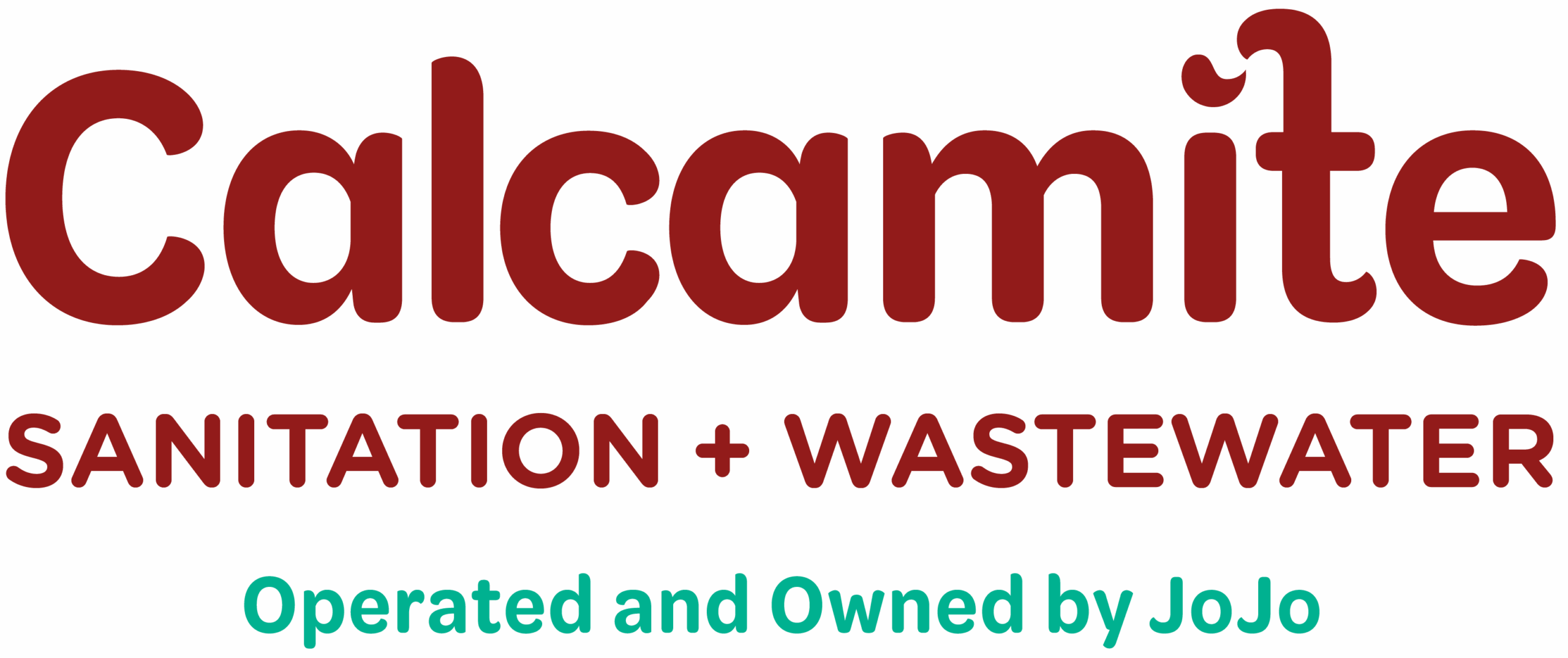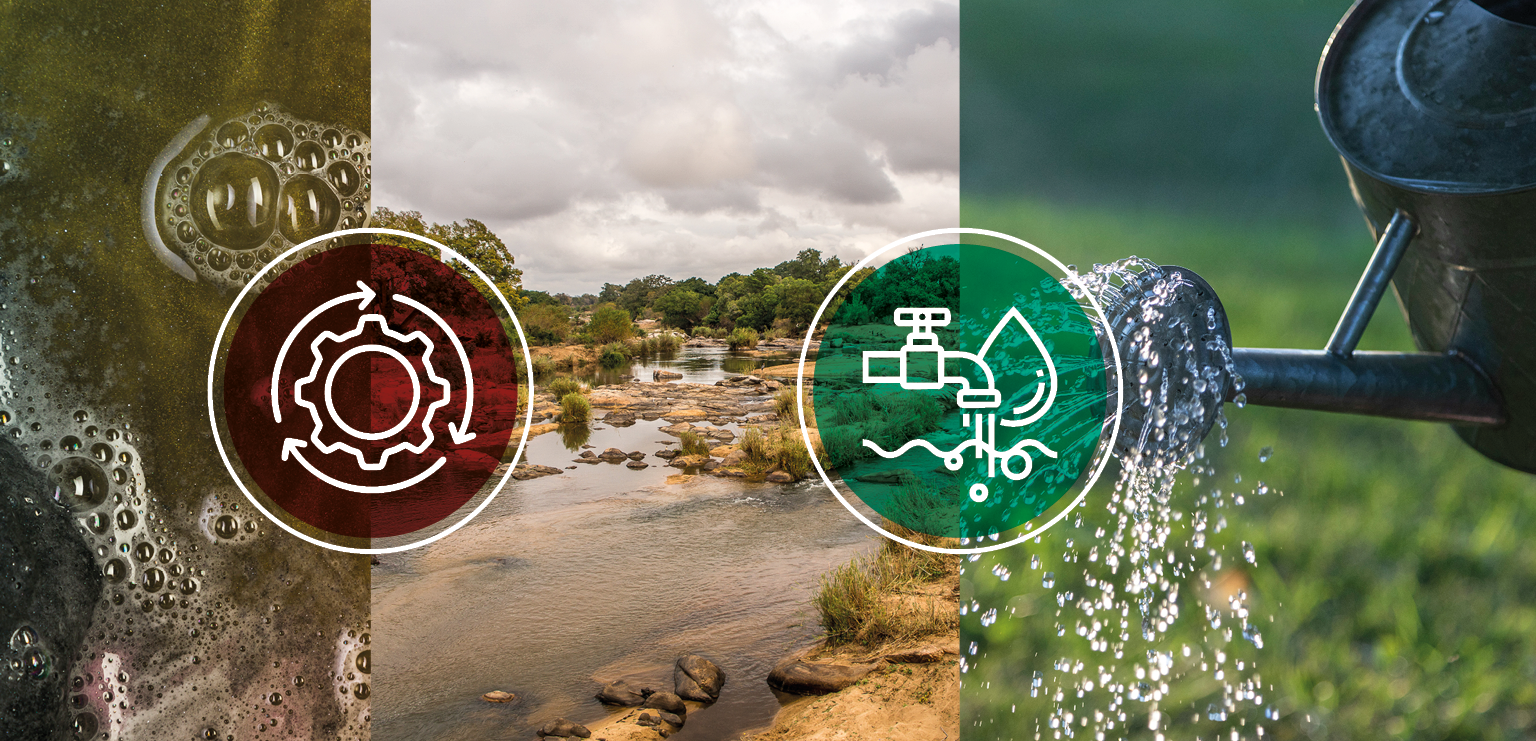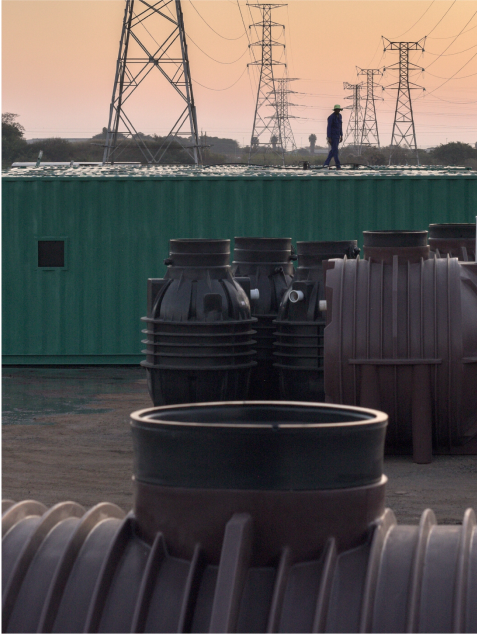South Africa deals with water scarcity and pollution every day. The availability of clean water is a fundamental pillar of public health and economic stability. And as urban areas expand, pressure on our limited water resources continues to grow, making effective wastewater treatment in South Africa more important than ever.
What Are Wastewater Treatment Plants?
Wastewater Treatment Plants (or WWTPs) are facilities that remove contaminants from used water from homes, businesses, and industries. Untreated wastewater can cause severe environmental damage and public health risks. By treating wastewater effectively, WWTPs turn hazardous effluent into water that’s safe for discharge or reuse.
The stages of wastewater treatment employ physical, biological and chemical methods to progressively purify the water:
- Primary Treatment: This initial physical stage removes larger solids and suspended particles in settling tanks. Heavier solids sink to the bottom and lighter materials like oils float to the surface to be skimmed off.
- Secondary Treatment: This biological stage targets organic matter in the water. Microorganisms are introduced to consume organic pollutants and prepare the wastewater for the final stage.
- Tertiary Treatment: This stage involves advanced processes to remove any remaining pathogens, nutrients and fine particles. It includes filtration and disinfecting, often by chlorination.
Want to learn more about how wastewater treatment works?
Explore the basic principles here, or take a deeper dive into the process here.
Environmental Benefits of Wastewater Treatment
The benefits of wastewater reclamation include:
- Better River and Groundwater Quality:
Treated wastewater helps reduce pollution in rivers, dams, and groundwater sources – key supplies for households, agriculture, and industry. Without effective treatment, these ecosystems suffer and water quality declines. Reliable infrastructure is essential for long-term water quality improvement and water security.
- Protecting Biodiversity:
Untreated wastewater can contain pollutants like heavy metals, chemicals, excess nutrients, and pathogens. These pollutants can devastate aquatic ecosystems, leading to fish kills and habitat loss. Effective wastewater treatment can prevent these catastrophes, preserve aquatic biodiversity and support environmental sustainability.
Health and Public Safety Benefits
- Fewer Waterborne Diseases: WWTPs remove harmful pathogens that cause diseases like cholera, dysentery, and typhoid, and lowers the risk of them spreading.
- Improved Public Health: Preventing drinking water contamination directly improves community health. This is vital in dense urban areas and particularly in informal settlements. Investing in effective water treatment is an investment in our national health!
Economic and Social Benefits
- Water Reuse for Agriculture and Industry: Treated wastewater can be safely reused for irrigation and industrial processes. This reduces the demand for potable water, and eases the strain on South Africa’s water resources.
- Cost Savings for Municipalities: Modern WWTPs offer notable long-term savings. These include lower healthcare costs and reduced expenses for treating polluted drinking water and contaminated water bodies.
- Job Creation: Designing, building, operating, and maintaining WWTPs creates many jobs. This boosts local economies and provides skilled employment across South Africa.
Regulatory Standards and Future Prospects
South Africa’s Department of Water and Sanitation monitors water quality through two key programmes: the Green Drop Report (for wastewater) and the Blue Drop Report (for drinking water).
- The 2023 Green Drop Report found that 64% of South Africa’s wastewater treatment works are at high or critical risk of releasing poor quality effluent.
- The Blue Drop Report, which tracks drinking water quality, also showed a decline, making it clear how closely wastewater treatment and public health are connected.
These reports highlight the urgent need to upgrade ageing systems and adopt better water treatment technologies. Calcamite is helping to meet this need with modular, affordable, compliant wastewater treatment systems that support long-term sustainability.
Working Together for a Cleaner, Healthier Future
Wastewater treatment is about more than just infrastructure. It’s key to water quality improvement, protecting health, supporting the environment, and building a more resilient future for South Africa.
Looking to make a positive impact?
Explore Calcamite’s wastewater treatment solutions and wastewater treatment systems, and find out how we can help improve water quality in your community. Contact us today to start building a cleaner, more sustainable future.



